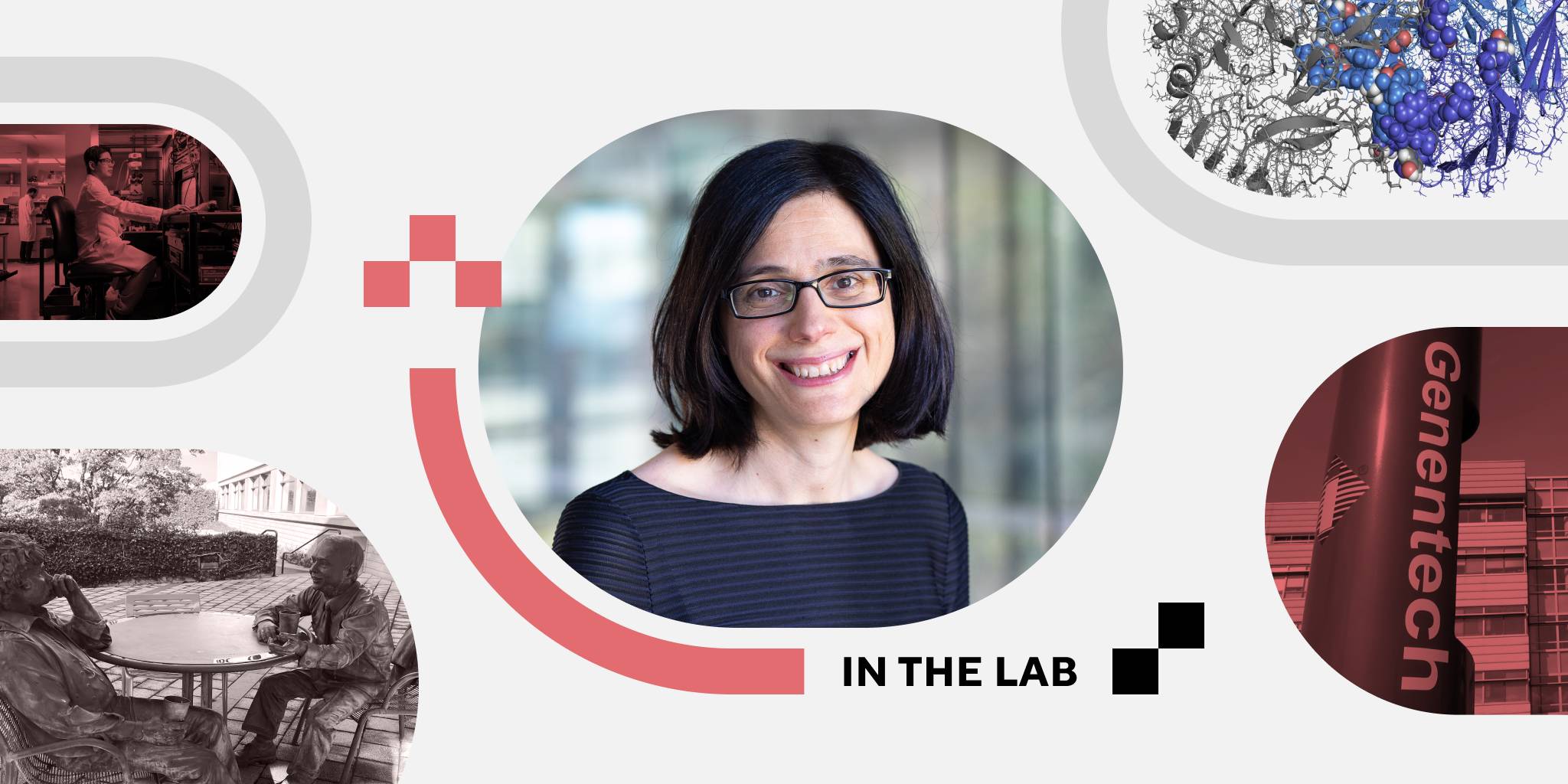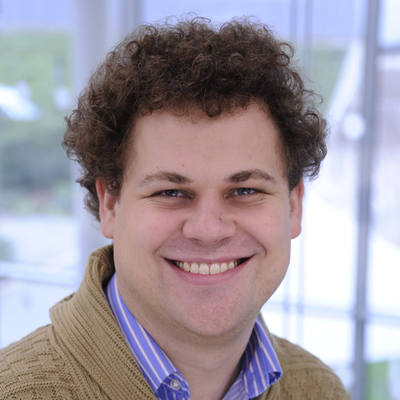
Aviv Regev leads Genentech's next revolution with AI
SOUTH SAN FRANCISCO — At Genentech, many of the company’s drug designers are making molecules for a machine that are, for lack of a better word, weird.
The new molecules don’t look like they’ll be better drugs. They don’t always make sense. But they make the computer happier. And as America’s oldest biotech reinvents itself to be at the forefront of a machine-learning race, this odd molecular work is training the algorithms upon which Genentech’s new leaders are betting its future.
“Those might not look great for our molecule team,” said Aviv Regev, the computational biologist who joined Genentech in 2020 to lead its research and early development unit. “They’re like, ‘This is never going to be a drug.’ Maybe it won’t. But it will make an algorithm that will be good for all drugs.”
Regev is leading the research redesign, which focuses as much on chips and compute power as on chemists and compounds. Genentech rose up nearly half a century ago as a pioneer in genetic engineering, and Regev believes the company can lead the next great R&D revolution by harnessing the growing power of artificial intelligence.
Virtually every pharma giant has dipped their toes into AI. But Genentech has plunged in since hiring Regev, poaching academic luminaries, creating labs, and earlier this year establishing a 400-employee computational sciences unit. The 52-year-old scientist left a distinguished career at the Broad Institute to move across the country with the vision of developing a new way of doing R&D.
 Thomas Schinecker
Thomas Schinecker“I plan to be here for the very long term,” Regev told Endpoints News. “There is no Plan B.”
Genentech, too, has tied its future to Regev, who oversees a team of about 2,400. Success is crucial not just to Genentech’s future, but to its parent company, Roche. The Swiss pharma giant has recently battled investor concerns over a thin pipeline, as its stock has fallen by about a third from an April 2022 peak. Roche CEO Thomas Schinecker has pitched investors on “evolving the R&D engine” with a unique setup of four research units operating in relative autonomy. Genentech is one of those, alongside groups based in Switzerland, Japan, and China.
Regev’s hiring “is a clear example of Roche’s firm belief in the power and importance of AI and ML to dramatically accelerate drug discovery,” Schinecker said in a statement.
***
Three years in, the biotech has bought and built its way to developing dozens of machine-learning models.
In 2021, the biotech acquired a New York-based AI startup called Prescient Design, when it had just a few employees and one protein-modeling algorithm. Genentech has built up Prescient’s team to 80, which has developed over 20 machine-learning models tackling a range of R&D problems.
A few months later, Roche and Genentech paid $150 million upfront for a wide-ranging collaboration with Recursion Pharmaceuticals. The companies didn’t start from a list of drug targets but instead are creating biological maps to better understand neuroscience and cancer, which could produce as many as 40 projects and over $12 billion in milestone payments.
And last month, Genentech signed a multiyear deal with chipmaking giant Nvidia, tapping its supercomputer powers to optimize its algorithms faster.
While it will take time for the vision to play out, Regev believes these new ideas will ultimately deliver more and more transformative drugs.
“We have put the framework in place, and we are truly using it for our actual work,” she said. “We’re testing it on the real thing. It’s not a paper. It’s not just fun science, which I love and do. But it has to pass the real test.”
That framework is called the “lab in a loop.” The idea leaves behind traditional R&D ways, which Regev described as simply too slow.
“If we proceed with everything in this stepwise, bespoke, almost handcrafted way, we can’t proceed fast enough and on enough problems,” Regev said. “We have to find ways to work at a different scale.”
The loop puts machine learning at the heart of R&D. Algorithms are trained on mountains of experimental data, making predictions that are then tested in labs. Results are fed back into the models to further improve them. The process repeats over and over.
 John Marioni
John MarioniComputational and experimental scientists are working together, Regev said, with both learning to think differently about doing research. That leads to projects like designing molecules that may seem useless to veteran drug hunters, but can train an algorithm’s uncertain eyes.
John Marioni, the former research head of the European Bioinformatics Institute, joined last year to lead the newly-formed computational sciences unit. The group has now reached “critical mass” to start applying data and models to the most interesting scientific questions, he said.
“We are at this cusp of doing something really incredible with data in the pharmaceutical sciences,” Marioni said. “It’s been really exhausting on occasion, but always fun.”
***
Genentech’s pipeline isn’t yet full of new molecules from the effort, which will be the true test of the bet’s success.
“You cannot judge success three years in, in this particular field,” Regev said. “Unfortunately, still, it’s too slow.”
But Regev said the strategy is impacting more and more programs. A foundational model, for instance, suggested a new disease to test a clinical-stage drug in, prompting Genentech to launch a new trial, Regev said, without disclosing the therapy. Prescient Design’s models are “part and parcel” of multiple preclinical programs as well, she added.
And some research partnerships, like one with BioNTech that started in 2016, are literally letting algorithms design the drug. The two are developing cancer vaccines, now in human testing, where machine learning analyzes a sample of a patient’s tumor and designs an individualized shot for that person.
But research coming out of the company hints at its early progress: The team has developed models and written papers on AI systems that predicted protein structures faster than Google DeepMind’s AlphaFold, studied tens of millions of immune cells, and made huge CRISPR screens faster and cheaper.
“People think it will work immediately,” Regev said. “No, no, no. It’s a set of multiple difficult problems, and you have to tackle all of them, and you’re only as good as your weakest link. There are many issues like that combined together, but if we don’t do it, what are we here for?”